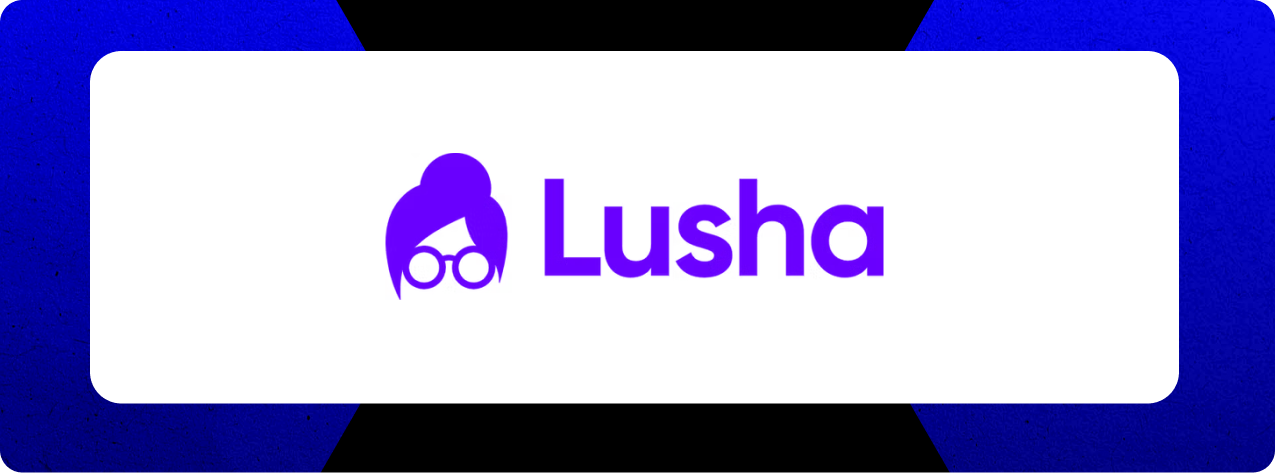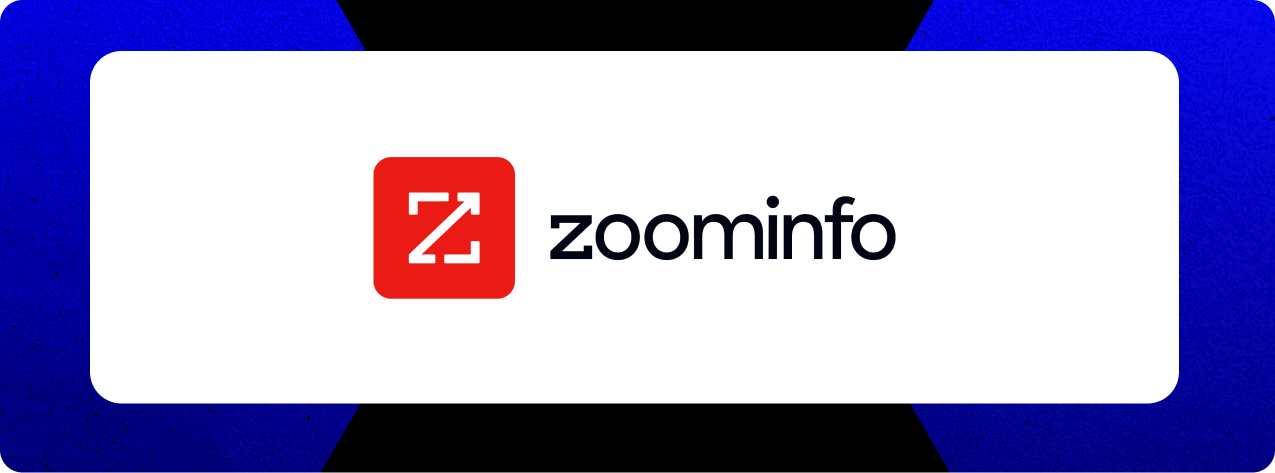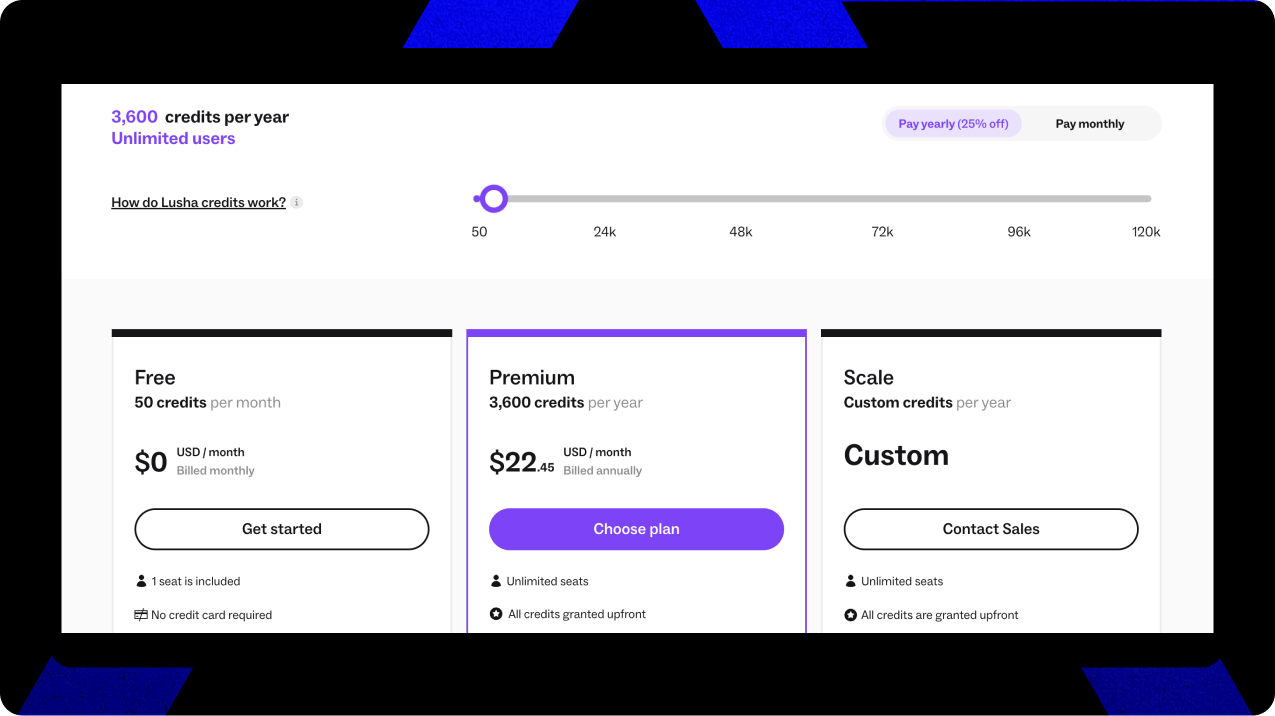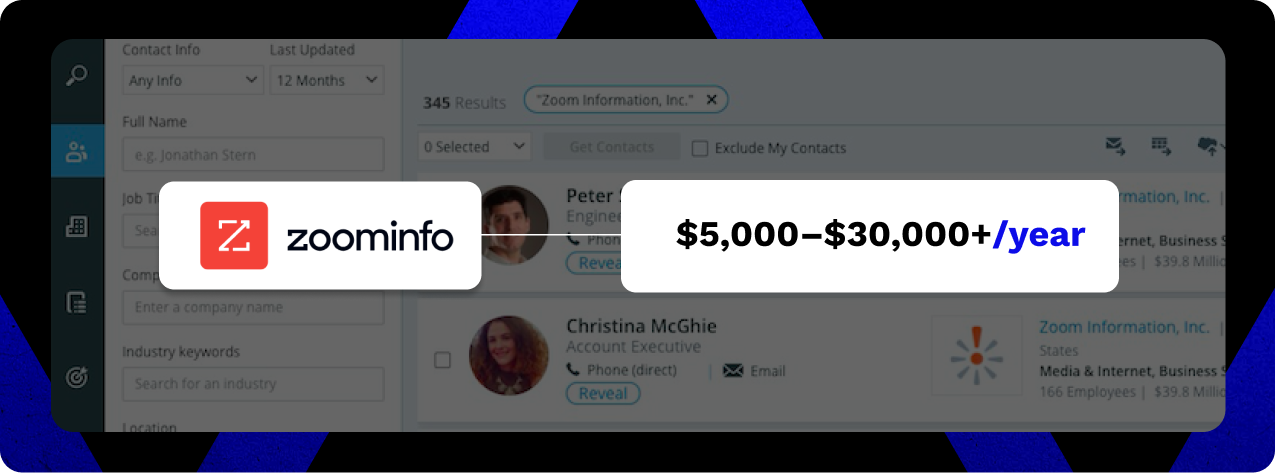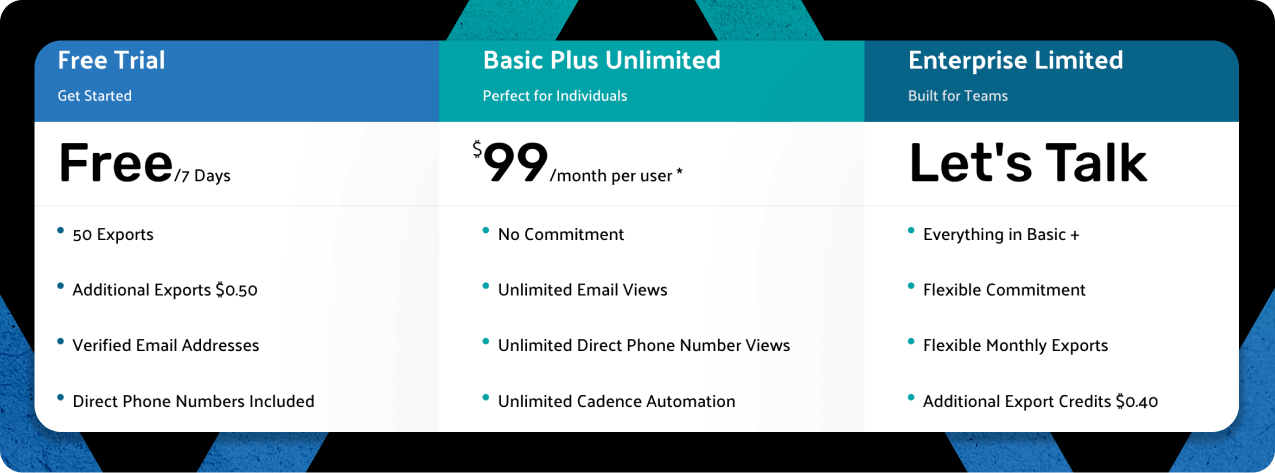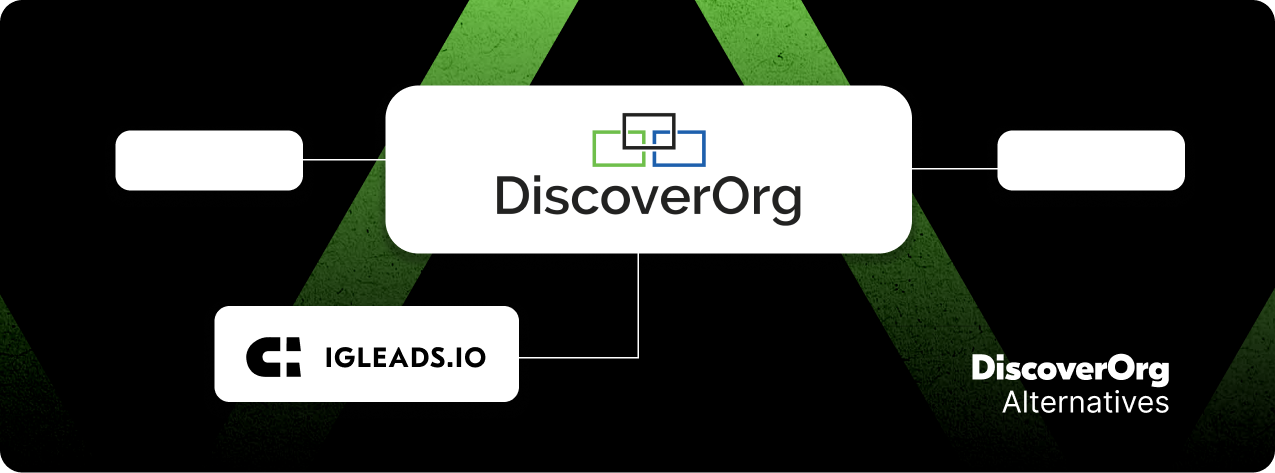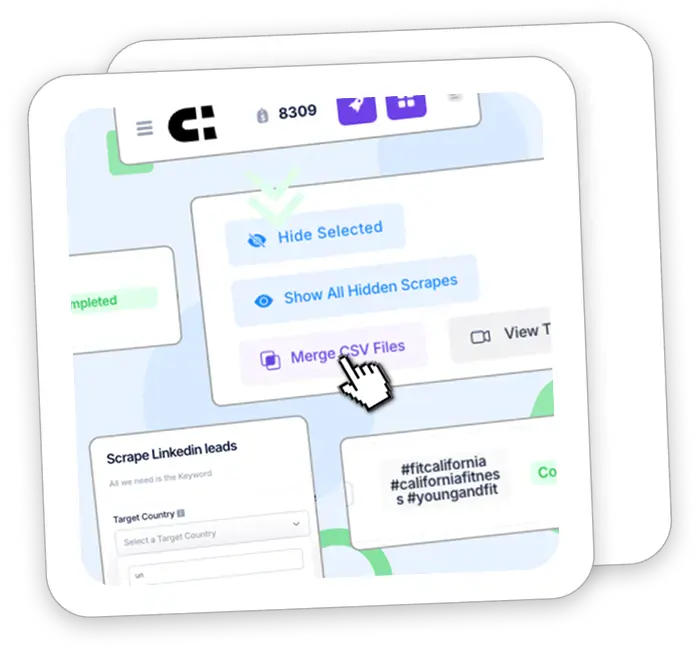Lusha vs ZoomInfo in 2025: Which Sales Tool Should You Choose?
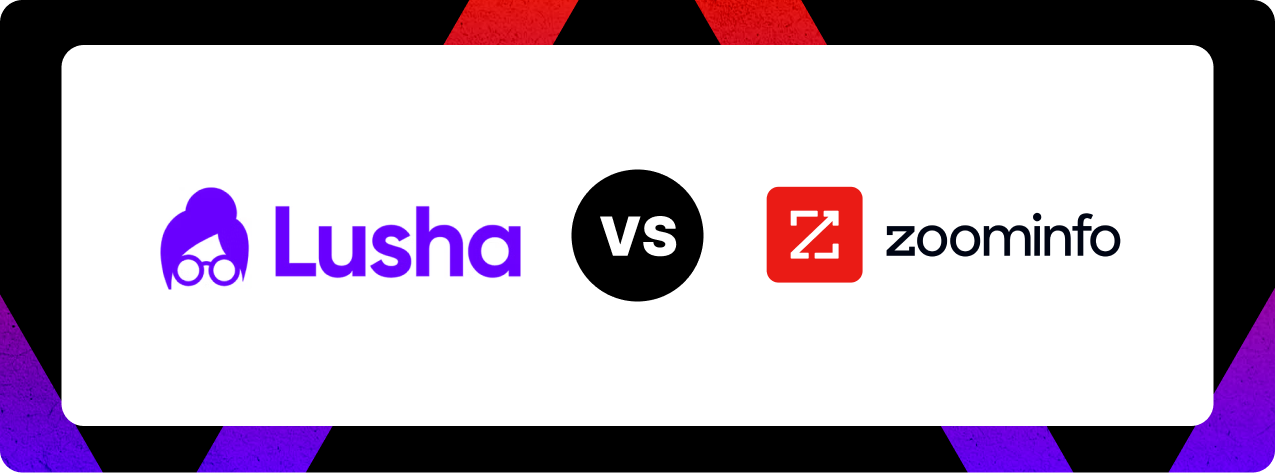
When it comes to finding leads, tools like Lusha, ZoomInfo, and others take completely different approaches. Lusha keeps it simple: fast access to phone numbers and emails with no bells and whistles. ZoomInfo? That’s the enterprise beast loaded with intent data, org charts, technographics… and a price tag that usually makes small teams back away slowly. But for teams that want fresher, niche-specific data scraped from real platforms like LinkedIn or Google Maps, IGLeads’ email scraper offers a flexible, real-time alternative.
So here’s the real question: Does ZoomInfo’s premium, enterprise-grade data actually make sense for a small team, or is Lusha’s leaner, cheaper setup more than enough?
For context, ZoomInfo starts at $15K+ per year, tied to annual contracts. Lusha, by contrast, has flexible monthly plans starting under $100, which is why it’s become a favorite among solo founders, agencies, and sales reps who want verified data without signing their life away. G2 reviews paint a pretty clear picture too: ZoomInfo holds a 4.4/5 from 7,800+ reviews, mostly from enterprise teams. Lusha clocks in at 4.3/5 from 2,000+ users, with plenty of love from SMBs.
ZoomInfo is the gold standard for intent data, technographics, and sales intelligence at scale. Lusha plays a different game: speed, simplicity, and affordability. No bloated dashboards. No complex workflows. Just quick, verified contact data without the enterprise nonsense.
But here’s the twist: what if you didn’t want to rely on static databases at all? That’s exactly where IGLeads flips the script. Instead of paying for stale databases, IGLeads scrapes fresh, real-time data from platforms like Instagram, LinkedIn, Google Maps, YouTube, TikTok, and Facebook. You get hyper-targeted leads based on your exact niche, audience, or location. And with transparent pricing, no credit limits, and no contracts, IGLeads has become the go-to for small teams who are tired of enterprise lock-ins.
This isn’t just another feature checklist. This article breaks down the real-world differences, pricing, accuracy, and ROI; plus why so many small teams are ditching both for faster, simpler alternatives like IGLeads.
Lusha vs ZoomInfo: Quick Breakdown of the Big Differences
If you’re wondering how Lusha stacks up against ZoomInfo, the short answer is: they live in completely different worlds. Lusha is built for lean teams that just want verified emails and phone numbers, fast. ZoomInfo? That’s the enterprise giant loaded with intent data, org charts, predictive scoring… and a price tag that’s definitely not small-business friendly.
So whether you’re trying to keep things simple (Lusha) or you’re ready to go full enterprise mode (ZoomInfo), here’s how these two tools really compare when it comes to data, features, pricing, and what you actually get for your money.
| Feature | ||
|---|---|---|
| Database Size | 100M+ contacts, 15M companies | 260M+ contacts, 100M+ companies |
| Email Accuracy | 90%+ (real-time verified) | 77% (user-reported), 95% (self-reported) |
| Phone Numbers | 60M+ direct dials | 135M+ direct dials, 50M+ mobiles |
| Data Collection | Crowdsourced + web scraping + AI enrichment | AI + 300+ data researchers + web crawling |
| CRM Integrations | HubSpot, Salesforce, Pipedrive + Zapier | 350+ deep CRM & MAP integrations + API |
| Sales Automation | ❌ None – manual export or CRM sync | ✅ SalesOS: workflows, scoops, intent triggers |
| Intent Data & AI | ❌ Not available | ✅ Yes – predictive lead scoring, buying intent, technographics |
| Website Visitor Tracking | ❌ No | ✅ Yes – visitor tracking, intent signals |
| Data Refresh | Crowdsourced updates + periodic refresh | Continuous AI crawling + daily enrichment |
| Pricing | Starts at ~$99/month | Starts ~$15,000/year |
| Free Trial | ✅ Yes – free trial with limited credits | ❌ No – demo only, or 48-hour limited trial |
| Best For | Freelancers, SMBs, lean sales teams | Enterprise sales and marketing teams |
At the end of the day, Lusha and ZoomInfo are built for totally different users. ZoomInfo is perfect for big sales teams that need deep company insights, intent signals, and automation, but it comes with a serious price tag and long contracts.
Lusha, on the other hand, fits small businesses, SDRs, and agencies who care about simple, clean contact data without all the enterprise extras (or the giant invoice). If you just want fast access to verified emails and phone numbers, Lusha gets it done. But if your team lives and breathes complex outbound workflows, ZoomInfo delivers. If you’ve got the budget to back it up.
The Best Choice for Small Teams: Lusha or ZoomInfo?
If you run a small team, you’ve probably noticed something: most B2B data tools feel like they were designed for massive enterprise sales departments, not for scrappy agencies, founders, or SDRs. Comparing Lusha vs ZoomInfo through this lens makes one thing super clear: these tools are built for totally different types of users.
Lusha: Fast, simple, and built with small sales teams in mind
Lusha is designed for sales reps, freelancers, and startups that need verified emails and phone numbers fast, without the drama. There’s no painful onboarding, no endless demos, and no 12-month contracts. You sign up, search, pull your data, and get to work. Simple as that.
The platform focuses on accuracy, simplicity, and speed. You won’t find intent data, predictive scoring, or complex workflows here, but that’s exactly the point. Just clean, reliable contact data when you need it.
On review sites like G2, Lusha scores 9.1 for ease of use, which checks out. It’s dead simple to get started, and customer support happens through chat, email, and a searchable help center. Perfect for lean teams that don’t have time (or patience) for bloated enterprise software.
ZoomInfo: Enterprise-grade power… with enterprise-level headaches
ZoomInfo is a different beast. It’s purpose-built for big sales and marketing teams running complex, multi-step outbound campaigns. And yeah, it’s powerful, but that power comes with some serious friction for small businesses.
The onboarding process is long. You’ll need to set up search queries, configure workflows, connect CRMs, set up intent tracking… and figure out how all the AI tools actually work. And forget about testing it first: There’s no real free trial. You’ll have to book a sales demo just to see behind the curtain.
To be fair, ZoomInfo absolutely crushes it if you need enterprise-level data enrichment, org charts, intent signals, and lead scoring. But for smaller teams that just want a clean list of verified emails and phone numbers, it’s often way more tool (and way more money) than you actually need.
So… which tool works better for small teams?
If you’re a freelancer, SDR, agency, or startup, the answer’s pretty obvious. Lusha wins hands down for small teams. It’s simple, affordable, and gets you verified contact info without locking you into yearly contracts or forcing you through a 3-week onboarding process.
ZoomInfo, on the other hand, is built for enterprise outbound teams that need deep company insights, intent data, technographics, and predictive lead scoring. If that’s your world, and your budget can handle it. Then ZoomInfo delivers. But for most lean teams, it’s total overkill.
And the customer ratings back this up. Lusha scores 4.3/5 on G2 with tons of love from SMBs, while ZoomInfo’s 4.4 rating skews heavily toward big enterprises who have the resources to fully use everything the platform offers.
Prospecting and Automation: How Lusha vs ZoomInfo Compare
When it comes to prospecting and automation, Lusha and ZoomInfo are playing two very different games. Lusha focuses on keeping things simple: grab verified emails and phone numbers, sync them to your CRM, and get moving. ZoomInfo? It’s all about enterprise-scale workflows, predictive AI, intent data, and automating every step of outbound sales.
If you’re wondering how these two tools handle prospecting and automation for small teams, here’s how they really compare.
Lusha vs ZoomInfo: Prospecting & Automation Feature Comparison
| Feature | ||
|---|---|---|
| Search Filters | Basic filters by job title, company size, location, industry. Perfect for quick lead searches. |
Advanced filters across job title, revenue, funding, intent signals, hiring trends, tech stack, and more. Ideal for laser-targeted ICPs. |
| Email Outreach | ❌ No native email outreach. Export leads or push directly to CRMs and email tools. |
✅ Fully integrated with CRMs and sales engagement tools. Automate sequences directly from the platform. |
| Chrome Extension | Works on LinkedIn, company websites, and search results. Quick lead capture into your lists or CRM. |
Works on LinkedIn, company sites, and integrates with Salesforce, HubSpot, Outreach, and 70+ tools. Instant pipeline syncing. |
| Automation Tools | ❌ None. Purely focused on accurate contact data. | ✅ SalesOS with Autopilot + AI. Automates lead generation, scoring, ICP detection, and workflow triggers in CRMs. |
Search Filters Compared: Simple vs Enterprise-Grade
Lusha keeps it straightforward. You can filter by job title, company size, industry, and location—more than enough for fast prospecting and general lead building. No fluff, no overthinking.
ZoomInfo goes all-in on filtering. You can stack filters for revenue, hiring signals, intent data, funding rounds, and tech stacks to build super-precise lists. It’s crazy powerful… but also overkill if you just need basic verified contact info fast.
Email Outreach: DIY vs Built-In Automation
Lusha skips outreach features entirely. You pull contact data, then push it to your CRM or tools like Instantly, Apollo, or Lemlist to run your email campaigns.
ZoomInfo takes the opposite route. It bakes email outreach directly into the platform. You can automate sequences, sync tasks with your CRM, and move leads down the pipeline without switching tabs.
Chrome Extensions: Both Get It Done
Lusha’s Chrome extension is simple but effective. It works on LinkedIn, company websites, and search results, letting you grab lead info quickly and send it to your lists or CRM.
ZoomInfo’s extension does the same, but with deeper integrations. One click sends contacts straight into Salesforce, HubSpot, Outreach, or 70+ other platforms. Perfect for enterprise workflows that demand instant syncing.
Automation Tools: None vs Full AI-Driven Workflows
Lusha doesn’t play the automation game. It’s intentionally lean. No lead scoring. No predictive AI. No workflows. You grab verified contacts and take it from there manually or with your outreach platform of choice.
ZoomInfo, meanwhile, is an automation machine. It can automatically surface new leads based on buyer intent, score them with AI, detect company hiring spikes, and trigger outbound workflows straight into your CRM or sales engagement platform. Powerful, but heavy—both in learning curve and in cost.
Data Coverage & Accuracy Breakdown
When it comes to data coverage and accuracy, Lusha and ZoomInfo take two very different paths. Lusha focuses on providing fast, reliable contact data without drowning you in extras. ZoomInfo? It’s the massive enterprise machine, loaded with a gigantic database, predictive enrichment, and intent signals. But does more always mean better for accuracy? Let’s break it down.
Lusha vs ZoomInfo: Data Quality Compared
| Category | ||
|---|---|---|
| Database Size | 100M+ contacts, 15M companies | 260M+ contacts, 100M+ companies |
| Update Frequency | Crowdsourced + user network + periodic refreshes | Continuous crawling + AI + 300+ human researchers Daily enrichment |
| Email Verification | Real-time validation at the moment of lookup | Verified via AI, Neverbounce, and human researchers |
| Accuracy Ratings | 90%+ (self-reported) High for LinkedIn-sourced data |
95%+ (self-reported) 77% (user-reported on G2) |
| Data Validation Method | Crowdsourced signals + direct user contributions + real-time checks | Hybrid model: AI, web crawlers, third-party validation, and manual research |
Database Size: Focused vs Massive
Lusha runs lean. Its database focuses heavily on contact-level data (phone numbers, direct dials, and emails) with coverage for around 100M contacts and 15M companies. It’s not built to be a massive firmographic engine but to deliver accurate contact info fast.
ZoomInfo, by contrast, is a data giant. With 260M+ contacts and 100M+ company profiles, it’s designed for large enterprises doing account-based marketing, deep territory research, and big-scale prospecting. But bigger databases also bring the challenge of stale data — a common user complaint.
Update Frequency: Crowdsourced vs Always-On Crawling
Lusha updates its data using a mix of crowdsourced inputs (from user lookups), direct verification, and scheduled refreshes. It keeps data current, but it’s not as aggressively crawling the web as ZoomInfo.
ZoomInfo never stops crawling. Its AI scrapers, bots, and a massive human research team keep refreshing millions of records daily. That said, even this approach has gaps, especially for fast-changing startups or small businesses.
Email Verification: Real-Time vs System Checks
Lusha verifies emails in real-time when you search for them, which keeps bounce rates lower than static databases. It’s strong, especially when combined with LinkedIn-centric prospecting.
ZoomInfo uses a multilayered system: AI, cross-checks with partners like Neverbounce, plus internal crawlers and human researchers. It’s solid but doesn’t offer a credit-back guarantee if an email bounces, unlike some competitors.
Accuracy Ratings: Crowd-Validated vs Scale Challenges
Lusha reports 90%+ email accuracy, particularly strong for LinkedIn-sourced data and SMB prospects. It’s not perfect, but lean teams generally report satisfaction, especially when compared to massive databases that risk bloat.
ZoomInfo claims 95%+ accuracy internally, but user-reported data on platforms like G2 tends to hover around 77% accuracy. It’s a classic case of quantity sometimes clashing with quality at scale.
Data Validation: Lean Checks vs Heavy Infrastructure
Lusha’s validation relies on community-driven updates, direct user lookups feeding its network, and periodic system refreshes. It’s lightweight but effective for contact-level prospecting.
ZoomInfo throws everything at the problem: AI crawlers, manual researchers, third-party data partnerships, and automated validation systems. It’s an impressive machine — but that also means higher costs and, sometimes, slower responsiveness for SMB-sized updates.
What Small Teams Really Pay: Lusha vs ZoomInfo
If you want to know who these platforms are really built for, just look at the pricing. Lusha vs ZoomInfo isn’t just a feature battle: it’s a budget reality check. One offers simple, flexible plans for lean teams. The other? Full enterprise pricing locked behind annual contracts.
Lusha vs ZoomInfo: Pricing Breakdown
| Category | ||
|---|---|---|
| Starting Price | ~$99/month (Pro plan) Based on credits |
$14,995/year (Professional) 5,000 credits (up to 3 users) |
| Mid-Tier Plan | ~$199/month (Premium) More credits, more exports |
$24,995/year (Advanced) |
| Top-Tier Plan | ~$399/month (Enterprise) Max credits + API access |
$39,995/year (Elite) |
| Team Pricing | Flexible per user No minimum seats |
Minimum 3 seats Scales with usage |
| Contract Type | Monthly or annual Cancel anytime |
Annual only Prepaid upfront |
| Free Trial | ✅ Yes, free plan with limited credits | ❌ No. Demo + 48-hour limited trial |
| Pricing Transparency | ✅ Public pricing on website | ❌ Hidden. Requires sales call |
| Best For | Freelancers, SDRs, startups, SMBs | Enterprise sales and marketing teams |
Lusha Pricing: Simple, Flexible, Small-Team Friendly
Lusha keeps it straightforward. You can start around $99/month for a Pro plan with basic credits, then scale up to $199/month for Premium or $399/month for Enterprise, which unlocks API access and higher credit limits.
No contracts required. Lusha offers both monthly and annual billing, giving small teams the flexibility to cancel anytime without getting trapped in a 12-month commitment.
And the best part? Pricing is public. No awkward sales calls just to figure out if it fits your budget.
ZoomInfo Pricing: Built for Enterprise Budgets
ZoomInfo starts at a whopping $14,995/year for the Professional plan, that covers 5,000 credits and up to 3 users. Moving up, the Advanced plan jumps to $24,995/year, and the Elite package hits $39,995/year for top-tier support, bigger limits, and premium features like enhanced intent data and predictive analytics.
There’s no monthly billing here. Everything is locked behind annual prepaid contracts. And forget public pricing. You won’t find it. You have to hop on a sales call to even get a quote.
Free Trials: Open Access vs Locked Demos
Lusha offers a real free trial. You can test it out with limited credits and see exactly how the platform fits into your workflow, no credit card required.
ZoomInfo does not offer a true free trial. Instead, it gives you a demo followed by a 48-hour limited trial with around 200 credits, strictly designed as a guided evaluation, not a real hands-on experience.
Best Value for Small Teams: Clear Winner Here
Lusha is built for small businesses, freelancers, and startups who need reliable contact data without sinking into enterprise-level contracts. You pay monthly or annually, with no surprises and no forced upgrades.
ZoomInfo is unapologetically enterprise. If you’ve got a large sales org with complex workflows, technographics, and intent data needs — and a budget to match, it’s a beast. But for leaner teams? It’s absolute overkill in both cost and complexity.
Or… skip both and check out IGLeads. Scrape real-time leads from platforms like Instagram, Google Maps, LinkedIn, YouTube, and TikTok. Pricing starts at $49/month: no credits, no contracts, no games. Just clean, fresh data whenever you need it.
Which One Is Best for You?
- Choose Lusha if: You’re a freelancer, SDR, agency, or SMB that needs quick, affordable access to verified leads without contracts.
- Choose ZoomInfo if: You’re an enterprise sales or marketing team that needs deep company insights, predictive analytics, technographics, and intent data, and has the budget to handle it.
IGLeads: A Simpler Alternative Without the Enterprise Overhead
If paying five figures for a static database or wrestling with credit systems sounds like a nightmare, IGLeads is the simple alternative you’ve been looking for. Instead of accessing outdated datasets or hoping AI guesses the right lead, IGLeads pulls fresh, real-time data straight from platforms like LinkedIn, Google Maps, Instagram, and YouTube.
No contracts. No credit limits. No guessing games. Just clean, hyper-targeted leads whenever you need them.
- ✅ Transparent pricing starting at $49/month
- ✅ Cancel anytime — no contracts, no commitments
- ✅ Real-time data from platforms most tools can’t access
Whether you’re targeting local businesses, influencers, creators, service providers, or niche markets, IGLeads gives you full control over lead generation. There is no middlemen, no bloated enterprise software.
Stop paying for outdated databases. Start scraping fresh leads on demand.
User Experience & Customer Support
The interface your team uses daily has a massive impact on productivity, speed, and how fast your team actually adopts a tool. Lusha and ZoomInfo take wildly different approaches: one is built for simplicity, the other leans deep into enterprise-grade complexity. For small teams, this difference is huge.
Lusha vs ZoomInfo: Usability & Support Compared
| Category | ||
|---|---|---|
| Ease of Use | Clean, simple, user-friendly UI Score: 9.1/10 (G2) Quick and intuitive searches |
Feature-packed, complex UI Score: 8.8/10 (G2) Powerful but overwhelming for small teams |
| Learning Curve | Minimal setup, intuitive onboarding “Easy to start using right away” |
Heavy onboarding required Mandatory demo before access Steep learning curve for new users |
| Customer Support | Email + chat support Self-serve help center Score: 8.5/10 (G2) |
Dedicated account managers 1:1 onboarding, live training, ongoing support Score: 9.0/10 (G2) |
| User Ratings | 4.3/5 (G2) Highly rated by SMBs and lean teams |
4.4/5 (G2) Stronger with enterprise users |
| Best For | Freelancers, SDRs, agencies, small businesses Anyone prioritizing simplicity, speed, and affordability |
Enterprise and mid-market sales teams Users needing advanced workflows, intent data, and deep support |
Ease of Use: Fast and Clean vs Complex and Heavy
Lusha is made for simplicity. You sign up, search, and export leads within minutes. The interface is clean, intuitive, and beginner-friendly. Most users describe it as “easy to learn and use right out of the gate.”
ZoomInfo is a different beast. While it’s incredibly powerful, the dashboard is feature-heavy, and users regularly mention that it feels overwhelming at first. You’ll likely need training to get the most out of it, especially if you’re a smaller team not used to enterprise tools.
Customer Support: Self-Serve vs Full-Service
Lusha keeps support simple but effective: chat, email, and a solid help center. Perfect for small teams that just want quick answers without waiting on ticket queues or dealing with overly formal support processes.
ZoomInfo takes the white-glove approach. You’ll get a dedicated account manager, 1:1 onboarding, and live training sessions. Great for big teams with complex needs, but unnecessary overhead (and extra cost) if you’re a small team that just wants leads without the fuss.
Learning Curve: Plug-and-Play vs Process-Heavy
Lusha is basically plug-and-play. Sign up, search, download. No demo required. No long onboarding. This is perfect for SDRs, founders, and agencies who don’t want a huge time sink just to get started.
ZoomInfo is the opposite. You can’t even try it without going through a demo. The setup involves connecting CRMs, configuring workflows, understanding intent signals, and getting through a decent learning curve — especially for small teams unfamiliar with enterprise-grade tools.
User Ratings: Simplicity vs Enterprise Complexity
Lusha holds a 4.3/5 rating on G2. Small teams consistently praise it for being quick, affordable, and easy to use without complex onboarding.
ZoomInfo scores 4.4/5 on G2, but its highest satisfaction comes from enterprise customers. SMB users frequently mention frustration with its steep learning curve and contract rigidity.
Lusha vs ZoomInfo: Key Numbers That Matter
| Feature | ||
|---|---|---|
| Database Size | 100M+ contacts 15M+ companies |
260M+ contacts 100M+ companies |
| Data Accuracy | 90%+ (self-reported) Strong on LinkedIn-sourced data |
95%+ (self-reported) 77% (user-reported on G2) |
| Starting Price | ~$99/month | $15,000+/year |
| Free Trial | ✅ Free plan with limited credits | ❌ 48-hour trial (after demo) |
| Ease of Use Rating | 9.1/10 (G2) | 8.8/10 (G2) |
| Overall User Rating | 4.3/5 (G2) | 4.4/5 (G2) |
| Data Updates | Crowdsourced + user network Real-time validation at lookup |
AI crawling + human research Continuous enrichment daily |
Want to dig even deeper? Check out the full breakdowns in our detailed reviews:
IGLeads: A Fresh Take on Lead Generation
Lusha and ZoomInfo both dominate the sales intelligence space, but eventually, a lot of users hit the same wall: high prices, rigid contracts, credit limits, and outdated databases.
That’s exactly where IGLeads steps in. We built it for sales pros, freelancers, agencies, and marketers who need real-time, reliable lead data without the enterprise baggage. No sales calls. No bloated demos. No complicated credit systems. Just clean, fresh leads whenever you need them.
IGLeads runs on flat-rate scraping quotas with zero surprises. No hidden fees. No sudden renewals. No guessing how many credits you have left. Just a simple subscription that lets you pull data directly from platforms most tools can’t even touch.
How IGLeads Solves the Problems Lusha & ZoomInfo Create
- Data accuracy without the enterprise markup – While ZoomInfo locks data behind five-figure contracts and Lusha uses static databases, IGLeads scrapes real-time data straight from the web. Fresh, accurate, and affordable.
- Ridiculously simple to use: ZoomInfo feels overwhelming. Lusha still relies on static searches. IGLeads works instantly. Log in, set your filters, hit scrape. That’s it. No onboarding. No friction.
- Clear pricing: no surprises: ZoomInfo hides costs behind sales calls. Lusha makes you manage credits. IGLeads gives you transparent pricing upfront. Pay monthly or annually. Cancel anytime.
- Fast, real support (without the enterprise drama): Forget slow ticket replies or getting bounced between reps. IGLeads combines AI-powered help with real humans who actually solve problems, fast.
Data From Platforms Others Don’t Even Touch
This is where IGLeads completely stands apart. We scrape real-time data from platforms most traditional tools can’t even access. Think:
- Google Maps
- YouTube
- Real estate directories and other niche platforms
Whether you’re targeting local businesses, influencers, service providers, or hyper-specific industries, you’re pulling leads from sources that Lusha, ZoomInfo, and every other database can’t even reach.
For teams testing new markets, scaling fast, or breaking into untapped niches, real-time scraping beats any stale database.
Ready to experience lead generation without the contracts, credit limits, or enterprise headaches? With IGLeads, you get fresh, targeted leads whenever you need them, no CRM lock-in, no bloated workflows, no long-term commitments.
“I began using igleads a few days ago, and I regret the time I wasted on less effective methods. I’m now committed to achieving better results.committed to achieving better results.committed to achieving better results.” – Umut Yesiltan, Spain.
Lead Generation Showdown: IGLeads vs Lusha vs ZoomInfo
| Feature | 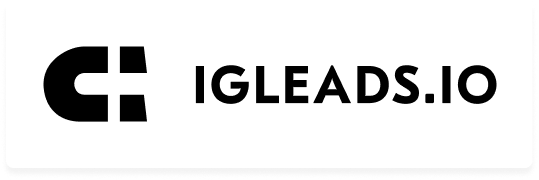 |
||
|---|---|---|---|
| Data Sources | Instagram, Google Maps, LinkedIn, YouTube, Facebook, TikTok, Twitter | LinkedIn-sourced B2B data + crowdsourced enrichment |
Proprietary crawling + AI + 300+ human research team |
| Database Size | Unlimited fresh leads via real-time scraping |
100M+ contacts 15M+ companies |
260M+ contacts 100M+ companies |
| Pricing Transparency | ✅ Fully transparent: Starts at $49/month |
✅ Public: Starts at $99/month |
❌ Hidden: Requires a sales call |
| Contract Type | Monthly or annual Cancel anytime |
Monthly or annual Flexible |
Annual only Prepaid contracts |
| Lead Types | Local businesses, creators, real estate, influencers, service providers |
B2B decision-makers, verified business contacts |
Enterprise B2B: ABM targets, decision-makers, Fortune 500 companies |
| Outreach Tools | ❌ None. Lead data only | ❌ None. Export only, no native outreach |
❌ No native outreach, it requires CRM or sales tools |
| Intent Data & AI | ❌ None | ❌ None | ✅ Yes, predictive scoring, intent signals, technographics |
| Credit System | ❌ No credits, unlimited scraping within your plan |
✅ Yes, annual credit limits | ✅ Yes, credit-based contract-tied system |
| Best For | Freelancers, agencies, creators, local businesses, marketers |
SMBs, SDRs, startups needing verified B2B data |
Enterprise sales & marketing teams needing deep insights |
Still weighing your options? Here’s the bottom line:
ZoomInfo and Lusha are built for traditional B2B use cases, but both come with limitations. ZoomInfo locks users into expensive, rigid contracts designed for enterprise-scale operations. Lusha is simpler but still relies on annual credits and a static database approach that doesn’t always keep up with fast-changing markets.
IGLeads skips the complexity entirely. Whether you’re going after local businesses, service providers, creators, or niche industries, IGLeads gives you real-time data scraped directly from the platforms your competitors are ignoring.
No contracts. No credit systems. No sales calls. Just clean, hyper-targeted lead lists whenever you need them.
If you’re ready to ditch bloated enterprise tools and unlock simple, scalable lead generation, try IGLeads today.
Related to Lusha
- 15 Best Lusha alternatives for 2025 (ranked): Stop wasting credits & get better leads
- Lusha Review 2025: Is This Lead Data Tool Still Worth It?
Related to Zoominfo
- ZoomInfo Review: What It Does, Who It's For, and What Users Say
- UpLead vs ZoomInfo: Which Sales Tool Is Better for Your Business?
- Seamless.ai vs ZoomInfo: Which Sales Tool Saves You More in 2025?
- RocketReach vs ZoomInfo: Which One Is Better for Small Sales Teams?
- Apollo.io vs ZoomInfo: Which sales tool wins on pricing, data, and features in 2025?
- Looking for a ZoomInfo Alternative? Here Are the Top Options
- ZoomInfo Extension Overview – Features, Drawbacks, and Alternatives
- ZoomInfo Pricing: How Much Will It Cost You?
Frequently Asked Questions
Yes, by a mile. Lusha starts around $99/month with flexible monthly plans. ZoomInfo, on the other hand, starts at $15,000+ per year with strict annual contracts. If you’re a freelancer or SMB, Lusha is way more budget-friendly. But remember, it’s also more limited in features compared to ZoomInfo’s enterprise stack.
Not exactly. Lusha relies heavily on LinkedIn-sourced data and crowdsourced contributions, which works great for many industries but may lack depth in others. ZoomInfo’s data is broader and enhanced with intent signals, technographics, and a massive research team — but whether that justifies the price depends on your needs.
You can cancel Lusha anytime with monthly plans, super flexible. ZoomInfo locks you into an annual contract, prepaid upfront. No monthly plans, no easy cancellations. If flexibility matters, ZoomInfo isn’t the one.
Lusha offers a free plan with limited credits, so you can try it out risk-free. ZoomInfo doesn’t do a typical free trial. You need to sit through a sales demo, then you might get a 48-hour limited trial, but it’s far from hands-on testing.
Yep, IGLeads. Instead of paying for static databases, IGLeads scrapes real-time leads from platforms like Google Maps, LinkedIn, Instagram, YouTube, and more. No contracts, no credit limits, no bloated features. Pricing starts at $49/month, with fresh data whenever you need it.
